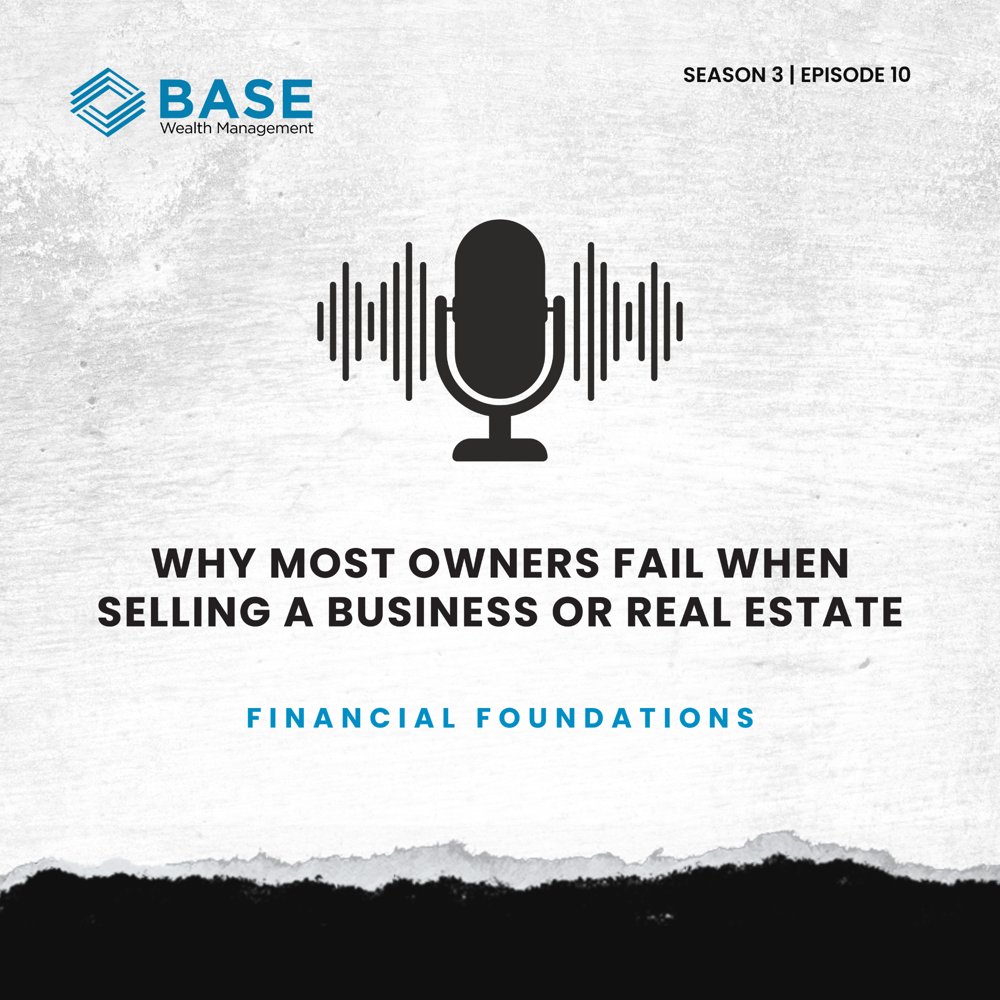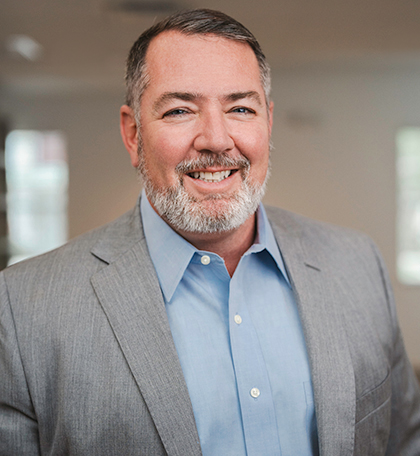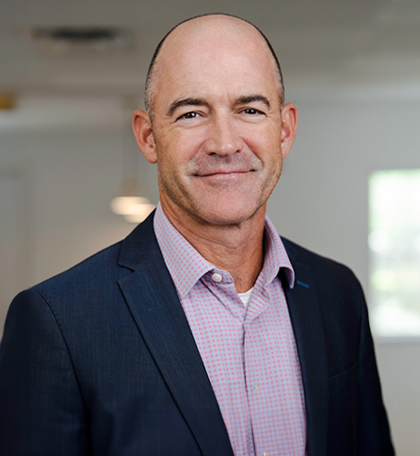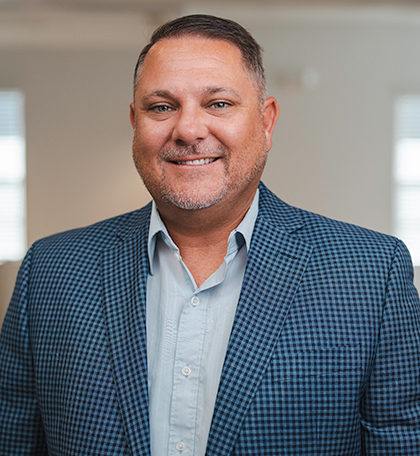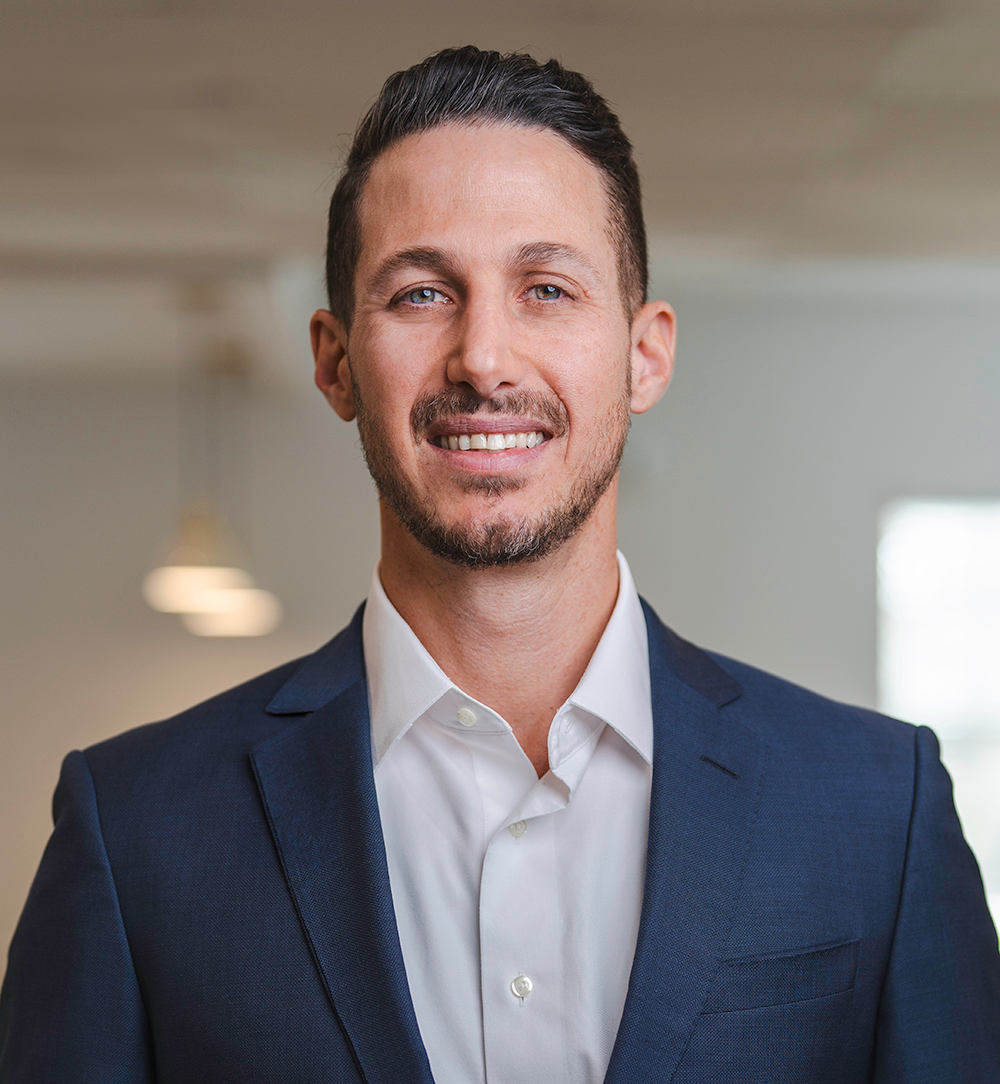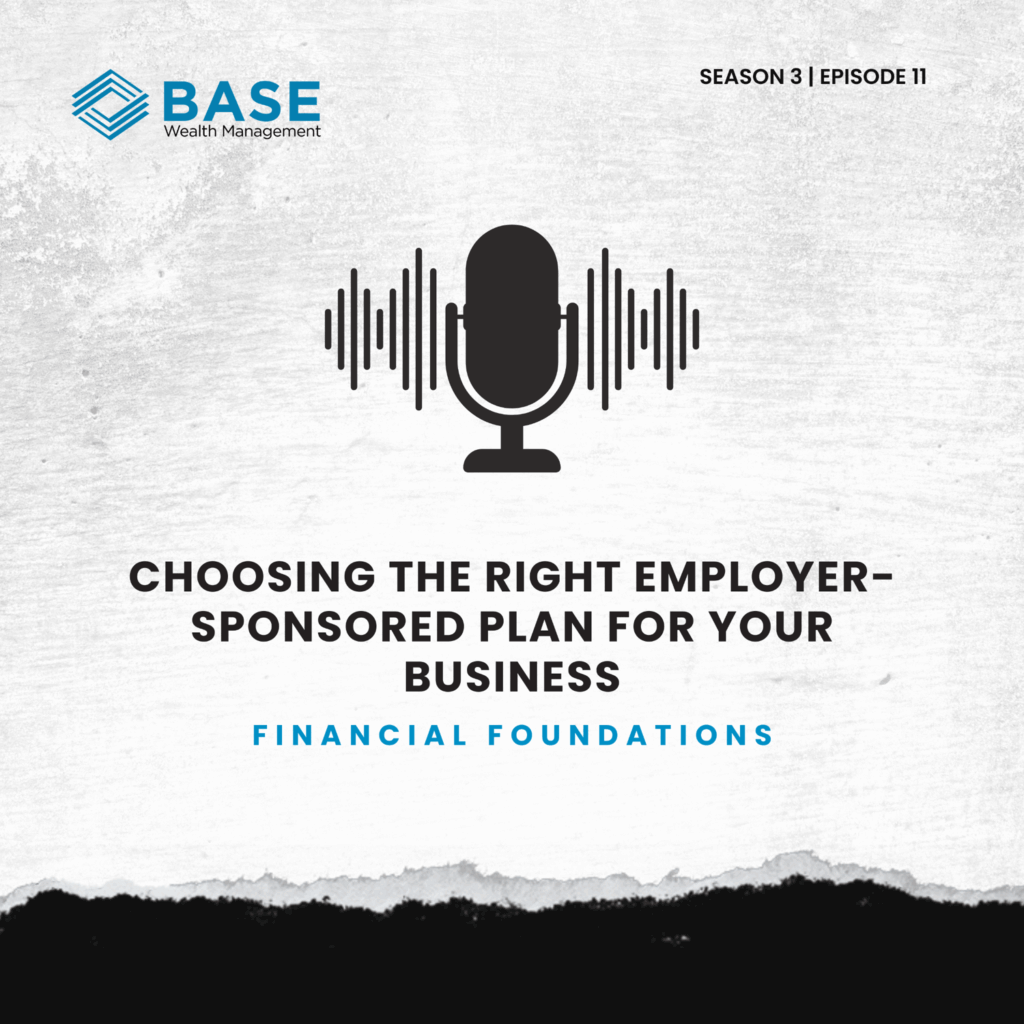
TRANSCRIPT:
And if the life expectancy is there, I may tell somebody, I think you have enough assets here to where we can generate an income for the next three or four years. Yes, we’re going to pull some of your assets down from your portfolio, but we’re going to get a higher amount from Social Security that is guaranteed through the government and whatnot. Welcome to the Financial Foundations Podcast, your gateway to the fascinating realm of finance, brought to you by Base Wealth Management. In this show, we delve deep into the world of money, guided by seasoned experts who will unravel the complexities of finance and provide you with invaluable insights and practical advice. Now, here are your hosts, Dustin Taylor and Alex Wolfe. Welcome back to Financial Foundations, brought to you by Base Wealth Management, where we are the foundation to your financial plan. I’m your host, Dustin Taylor. I’m your co-host, Alex Wolfe, certified financial planner. And we have back with us again, Kyle Howell. Welcome back, Kyle. Welcome back, Kyle. Thank you, fellas. Appreciate it. Today, we’re going to talk about how to retire early as our own overall theme. So let’s start with Alex. What is on the top of the list for how to retire early?
I think the most obvious one and the one that we talk about a lot is spending less than what you make and increasing the amount that you’re saving. And you can do that through a variety of ways, which we’ll talk about, whether it be just into a savings account, your retirement plan through work or an IRA, there’s different avenues that you can save through, but obviously saving early in as much as possible increases your chances of being able to retire early. I think that most people would love the idea of retiring early. What are some things that younger people can do now to try to retire early? Start small is my main focus, especially with the younger folks that I deal with. It might be 25 bucks a month. It might be a hundred bucks a month, but just get started. Don’t wait. You have a lot of time for your investments to grow when you start early. Other than saving, the next biggest thing is using time on your side and the younger you can start, the better. And as Kyle said, it may not be much to begin with, but over time you let the money grow through proper investing and compounding growth and being able to sock away 50, a hundred dollars, however much you can, especially in those early years, will actually go a lot farther than a bigger savings 20 years later. Yeah, I’ve seen a lot of material that sort of highlights that the first even 10,000 and then especially the first 100,000 is like the hardest to get. So whenever you’re younger, what are some things, I mean, it’s very easy, I think, to tell people to start early, but how can they really do that? It’s more difficult than it sounds, I believe. It is.
And it can be, maybe you just don’t know how, and the best thing you can do is just set up like a reoccurring monthly transfer to your IRA or whatever type of savings account you’re going to use. So by setting up that monthly reoccurring transfer, it takes all the complexity and difficulty out of it. So you don’t even have to think about it. So every month you have that, say a hundred dollars transferred to your brokerage account or the IRA, and you can even set it up to automatically be put into like an S&P 500 type fund. Well, yeah. And then you won’t miss it that way. Right? Exactly. If it’s already being done from the very beginning, it’s like it was never even like, you won’t miss it. It’s different where if you started it years down the line and you knew you had that extra money coming in and all of a sudden it’s not there, you’ll feel that. But if you do it from the get go, just like having taxes withheld from your paycheck, same concept, you won’t know it’s there until it comes back. One of the things that I employ even for myself is the money that’s put away into, I don’t even really use a savings account. I put everything into a non-qualified.
But even with that, I just consider that as money that I don’t have. Yeah, that’s a good way to put it. And it is going to be very rewarding when you are ready to tap into that money and kind of out of sight, out of mind, or sometimes people in our industry say, set it and forget it. Similar type, type concept. And so Kyle, also, there are some people out there, I’ve seen some financial advice on YouTube and stuff like that. It’s like cut out your daily coffees that are like five and seven dollars and stuff like that. Would you, would you think people should go that far or do you disagree with that? I’m not a fan of the extremes. I mean, as long as you keep to a relatively simple budget and you stay within that budget, I don’t have a problem with my clients going out and spending that seven, $8 on coffee. But again, as long as they’re not using their credit card that they’re not paying off every single month to go buy that coffee or go buy the groceries. So I agree, I hate having to micromanage or be that person that is the hand on the shoulder of a client saying, you got to cut these things out, but being able to like work that into your budget is much more fulfilling, but making sure that they’re sticking to like a budget or having them come up with that budget and sticking to it is going to be better than like trying to talk to them about like, Oh, cancel your Hulu, cancel these subscriptions and no more coffee. Like that’s not what we’re here for. Right. And we’ve talked about it on previous podcasts about the budget software. And once I help you get the budget set up, I don’t really look at it anymore. Yes. I have access to it, but that’s for you. That’s for the client. That’s for you to use on a daily basis or weekly basis. However, often you’re tracking that budget. So I typically, unless we’re doing a semi-annual or annual meeting, I’m not looking at what you’re doing from a budget standpoint, week to week. So it really does fall back on you. So if you want to go out and buy that coffee, by all means, go out and buy the coffee.
Okay, let’s move on to what if you’re in your 40s and 50s already and you want to retire early? What are some things that you can do then so this it really becomes like crunch time Especially if you’re trying to retire early and hopefully you’ve you’ve done something, but you’re not alone if you have it There’s plenty out there that may feel like they’re behind on their savings and they may not be able to but that’s when you really have to be disciplined and save as much as possible and Use investing on your side to come up with like a goal of being able to save a certain amount each month being able to put it into some type of investment allocation and sticking to that and letting those last years of working do the lift and it could be something as simple as like taking advantage of company benefits like Matching into your 401k or company profit sharing things like that and that will help the older individuals as well as the younger but making sure that you’re at least getting that free money from like a company match. In the clients that you work with who have the goal of retiring early, could you put a number on how many are successful? I don’t know offhand like a specific number but we are seeing like a considerable amount that are coming to us that are saying they do want to retire early and we want to make sure that they have like a proper financial plan in place to be able to show them what’s the probability or likelihood that they’ll be able to do that and if they may have to make any sacrifices if they do decide to retire early. So we can do some scenario analysis and show them like this is what your income spending could be like if you retire at 60 versus 62 or whatever age. We can do some of those scenarios and showing them like how much more they might be able to spend during retirement if they work just an extra two years.
And you’d be surprised what an extra couple of years will do to someone’s financial plan. I know that everyone’s different, but is there a particular age that you’ve seen a lot of people shoot for to retire? I would say, and I’d be interested to hear Kyle’s opinion, but I would say like 55 or 60 or somewhere in there. It seems like that age is coming down a little. What do you think? It definitely is. I’ve got, I think, three just off the top of my head that I’ve met with in the last two or three months that are in their early fifties or mid fifties and they’re ready. They’re ready now and trying to figure out, okay, is it 55? Is it 57? Is it 60? But they’re 52, 53 years old. So trying to play around with the numbers and see if, for instance, there’s one that’s about 1.5 million, they’re 52 and 53, married couple. And I said, if you guys want to go at 55, let’s do it. They’re very simple. They don’t spend a lot of money. Obviously, they’ve got a substantial nest egg in their early fifties.
Then yeah, let’s go ahead and do it. But if somebody that’s 800,000 to a million that is accustomed to $150,000 income for the year, probably not gonna be able to retire at 57 or 58. We may need to push that back to 63 or 65. Yeah, I totally agree. It really depends on their lifestyle. Someone who could potentially retire off 500,000 if they had no real substantial mortgage or debt and they live a really simple lifestyle. But I’ve also seen people with $5 million who struggled with money because they spend a significant portion of that every year. And vice versa. You’ve got people that have 5 million but feel they don’t have enough. Right. But they are not necessarily spenders either, but they just, they feel that they don’t have enough. So for someone who is in their, let’s call it mid 40s and who has been contributing to their retirement plan on a scale of one to 10, how hard would it be for them to retire at 55 or 60? How difficult is it? A seven, I’m going seven to eight. It depends on some of these things we’ve talked about. A, how much have they been contributing? How are they invested? Are they, if they’re been really aggressive since they were 20 and they’ve got over 20 years of like aggressive type returns, then they may be more likely, but then what are they looking to spend during retirement? And then retiring early, really early brings on a whole nother complexity of problems for early young retirees, right? Yeah. I mean, just going back to another example, I’ve got a 45 year old with $800,000 in his 401k plan. And I’ve got a 45 year old that has $25,000 in the 401k plan and doesn’t have anything in addition to that 401k plan. So opposite ends of the spectrum, $800,000, $25,000.
So, even for the 800,000 45-year-old, still may be relatively difficult to retire at 55 because of the income that he does have, and he has taken on the risk early on in his career from an investment standpoint to get to that point where he’s at right now. Right. And then some of those challenges are, how do you access your qualified accounts at a young age? There’s certain laws or penalties that you need to be aware of before you can start withdrawing money from those accounts. Yeah, I think an N55 is pretty much the standard from an early retirement when it comes to the 401k and being able to access without penalty. So we’ve talked about how, besides saving, investments can help you to retire early. How can they detract from you retiring early? I would say if you’re overly aggressive right before retirement, and all of a sudden you’re like, okay, I’m going to retire at 55 and your plan looks good, but your investments are too aggressive, and all of a sudden we hit like a market recession or a big correction in the stock market and your portfolio is now 30% less than what it was a month ago. So you definitely want to make sure that your portfolio is positioned for you to enter that retirement year. So that way you don’t have to worry about market returns for the first couple of years of retirement or leading up to it. And we’ve talked about this on our previous podcast as well, about the sequence of return risk, right? You go into retirement, you’ve got two 65 year olds that go in, not necessarily in the same year, but they retire at 65. One retires and the market’s up 20%. The other one retires five years later at 65 and the market’s down 20%. Well, the one that retired in an up year more than likely is not going to run out of money where the one that retired a few years later in a down market will more than likely have a better chance of running out of money. Unfortunately. You’re right. Exactly. What, what type of things do people forget about when retiring early? What’s the biggest thing, like healthcare?
Yeah, health care is probably the biggest and also one of the biggest concerns that young retirees and a financial planner may have for them is how are they going to cover the cost of private health care? Or do they have a job where their health care is going to be covered until they can get on Medicare, which doesn’t happen until 65. So you could be on private health care for a considerable amount of years, depending on how young you retire. And then thinking about how you fold in social security, we obviously want to do some calculations, especially for spouses to see who should collect first or who should defer theirs. What do you think Kyle? The social security is a big part of it as well that not everybody I think plans for. We talk about health care is the biggest expense, but social security is probably the biggest guarantee you have from an income standpoint for a 25, 30 year retirement and planning around being able to maximize the income in social security is a big, big piece other than figuring out how we’re going to pay for health care. The other part of that is working with a lot of like government workers that may have a pension, making sure that they’re going to reach pension age before retiring. And most of them already know that because they’ve been watching it for years since they began, so they’ll know all about it. But you definitely can help them do some calculations on when to start the pension or what type of rider or survivor benefit to add onto their pension for the benefit of their spouse. If you retire early, the biggest issue I guess is missing income and social security takes care of part of that. But what are some other things that you can do to replace that income? Yeah. So you’ve got the guaranteed sources like social security and some of those that have like a pension, but you also are going to need to figure out like your income strategy or withdrawal strategy from the portfolio. Is your portfolio generating income? When I look at generating income for retirees, I look at multiple asset classes. For somebody that maybe doesn’t have a pension, maybe we need to look into annuities. Do we need to look at real estate investments for higher net worth that may not be a liquid type investment? But I guess there’s enough of a portfolio there to be able to put money into something that may not be liquid, but it’s going to generate more income than a traditional publicly traded stock or even a bond or anything like that. Both of you, I think, have mentioned Social Security being a guaranteed income source. How is it affected by retiring early because you’re missing out on some more earning years? I assume it’s not probably your prime earning years, so maybe it’s not affected that much, but is there any effect on it? I suppose it could be your prime earning years or toward the tail end if you decide to retire early. So that could definitely affect your calculation if you’re leaving some strong earning years on the table. But for some, it may not be worth it if they’re not enjoying their job or burnt out. But then if you collect early, you could also be leaving money on the table and that may not be the best benefit for yourself, but trying to delay it as long as possible. And there’s health considerations and spousal considerations to factor into that as well. Yeah. And I look at life expectancy for the most part when it comes to helping people with figuring out how to maximize that social security strategy. And if the life expectancy is there, I may tell somebody, I think you have enough assets here to where we can generate an income for the next three or four years. Yes, we’re going to pull some of your assets down from your portfolio, but we’re going to get a higher amount from social security that is guaranteed through the government and whatnot. But if we can get you a higher guaranteed paycheck for the rest of your life, I’d rather give you that guarantee that I can’t necessarily guarantee on a portfolio that that’s got stocks and bonds in it.
It’s like nuggets of information have scratched the surface of retiring early, but you definitely need to talk to a financial advisor and find out more about how you can retire early in particular. So with that, there are other resources on our website at basewealthmanagement.com. Can always check that out. Subscribe to our podcast, subscribe to our YouTube channel, and check out all the resources there. Don’t forget, you can also submit questions. If you want us to address a certain question or topic on the podcast, you can send those to us at question at basewealthmanagement.com. Thanks for your input, Kyle. Thank you for having me. I’m your host, Dustin Taylor. I’m your co-host, Alex Wolfe. And happy listening. We hope the expertise shared by our hosts, Dustin Taylor and Alex Wolfe, has left you feeling empowered and informed. If you’re eager for more financial wisdom, don’t forget to subscribe, rate, and share the show with your friends, family, and colleagues. Until next time, stay sharp in the world of finance.


